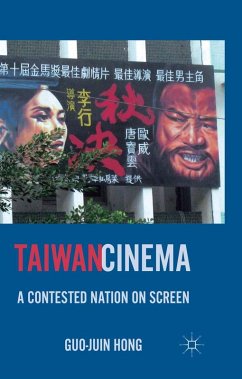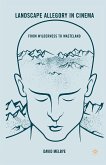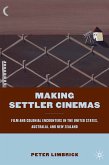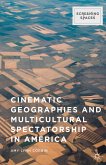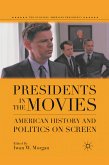Dieser Download kann aus rechtlichen Gründen nur mit Rechnungsadresse in A, B, BG, CY, CZ, D, DK, EW, E, FIN, F, GR, HR, H, IRL, I, LT, L, LR, M, NL, PL, P, R, S, SLO, SK ausgeliefert werden.
"Recommended." - CHOICE
'For most of us, Taiwan cinema has meant Hou Hsiao-Hsien, Edward Yang, Tsai Ming-Liang and perhaps Ang Lee, incredible talent from an orphan island, but by no means the whole roster. Guo-Juin Hong puts these masters into a grand historical picture, highlighting other directors and genres, and earlier moments. His accounts of production circumstances and his lovingly detailed evocations of images and stories makeus crave to see more, while adding a significant dimension to the films we have always cared about. Meanwhile he shows us how and why such cinematic intensity vibrates in Taiwan, that strangely uncomfortable, yet fantastically creative 'home of the homeless.'' - Dudley Andrew, Yale University
'This is a wonderful work it offers a deep and provocative engagement with the historiography of Taiwan cinema. Canvassing a large body of historical material and films both well known canons as wellas 'forgotten' films, popular melodrama as well as art cinema this well organized and eloquently written book will be indispensable reading for students of Taiwan film and culture history. A major contribution.' - Zhen Zhang, Associate Professor of Cinema Studies and East Asian Studies, New York University and author of An Amorous History of the Silver Screen: Shanghai Cinema 1895-1937
'Hong's book richly fulfills its ambitious agenda. It is sure to become an instant classic, constituting simultaneously an intervention in critical Taiwan studies, a case study in colonial and postcolonial nationalisms, and by far the most comprehensive history of Taiwan cinema available in English. A benchmark for studies in years to come, providing a foundation that future scholarship can build upon.' - Jason McGrath, Associate Professor of Modern Chinese Literature and Film, University of Minnesota, Twin Cities
'Not only an indispensable guide to a rich filmic realm, but also an innovative rethinking of one of the most persistent paradigms in film studies: the discourse of national cinema. Through a series of deft close readings of both the masterpieces of the New Wave and lesser known, but no less fascinating, genre films, Hong reveals the ways in which 'Taiwan cinema' has always been a dangerously 'theoretical' undertaking.' - Andrew F. Jones, Professor of East Asian Languages and Cultures, University of California, Berkeley

